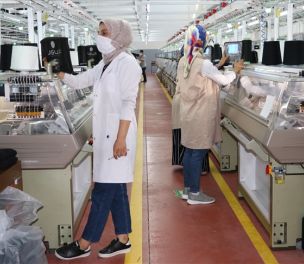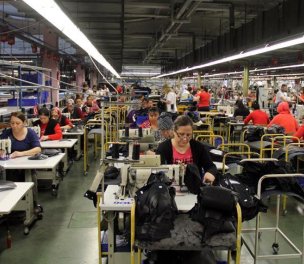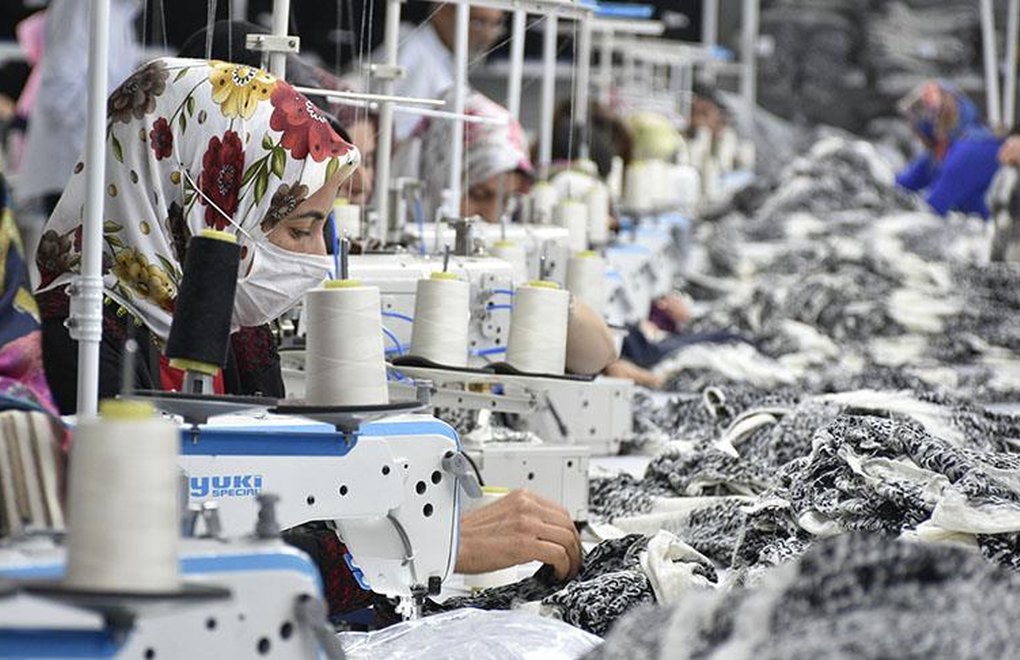Image generated with Bing Image Creator
Click to read the article in Turkish
Until 2003, the only institution in Turkey that facilitated employment and job placement on behalf of the public sector was the "Job and Employee Agency." However, with the enactment of the Turkish Employment Agency (İŞKUR) Law that year, previously illegal "private employment agencies" were legalized. Over the years, the İŞKUR Law, consisting of 35 articles, underwent numerous changes, gradually privatizing the concept of public employment and leaving it unregulated. The implementation of the National Employment Strategy, which aimed to produce cheap labor through precarious employment, has turned Turkey into a "labor hell" within a span of 10 years.
Upon examining the table below, it can be observed that there has been a higher increase in employment, particularly in "insured employment," compared to population growth in Turkey. From the year 2014, when the National Employment Strategy was implemented, until 2022, while the total population in Turkey increased by 10%, employment increased by 19%, and "insured employment" increased by 24%.

However, this seemingly positive trend reveals a grim reality when examining real wage growth, the share of wages in total income, and working conditions. It appears that in Turkey, "more people are forced to work longer hours for lower wages."
While the minimum wage in Turkey saw a 24% decrease in terms of US dollars between 2014 and 2022, considering the impact of inflation on the dollar, this decrease can be as high as 40%. The fact that the minimum wage in Turkey is close to the average wage is sufficient evidence of the severity of the situation. Furthermore, the halving of labor's share in national income highlights the extent of mass impoverishment during this period, and it should be carefully examined in terms of exacerbating gender disparities and existing regional inequalities.
The table above demonstrates how the AKP government has successfully implemented a neoliberal policy of impoverishment that is detrimental to labor. The final line of the table shows the number of job placements by İŞKUR. Accordingly, İŞKUR, which placed 700,000 people in jobs in 2014, appears to have almost doubled this figure by 2022. It is also known that in some years, this figure has exceeded 100%. Between 2014 and 2022, the number of individuals placed in jobs by İŞKUR exceeded the total population growth, employment growth, and the increase in "insured employment" in Turkey.
According to İŞKUR Statistical Yearbooks, it is claimed that during this period, İŞKUR provided employment for 9,732,000 individuals and offered vocational training, internships, and entrepreneurial opportunities to 3,619,000 people.
In recent days, two news reports have emerged—one revealing that "fictitious" employment was conducted through İŞKUR, leading to comprehensive detentions and investigations, and the other claiming that İŞKUR placed over half a million individuals in jobs within 2023. Using the famous "cat-liver metaphor," if İŞKUR is facilitating so many job placements, where is the increase in employment? If it is not doing so, how are these statistics calculated?
It is known that not all job placements in Turkey are made through İŞKUR, and İŞKUR's share in this field has been decreasing and is now below 30%. In a context where companies, individuals, online platforms, and private employment agencies also play a role in job placements and intermediation, shouldn't the total employment be higher?
How much quality control, registration, employment duration, compliance with vocational training given/received, and similar inspections/observations are carried out in İŞKUR's job placements, and why are the results not disclosed to the public?
We are aware that the unemployment fund, deducted from workers' premiums, is used to finance İŞKUR's activities. Therefore, it is necessary to prevent "fake employment and job placements" which means the misuse of this fund. There is evidence and allegations that activities such as job placements, internships, courses, and similar ones are carried out under false pretenses without the existence of workplaces, employees, or production, and these are presented to the public.
If the detention and ongoing investigation in Büyükçekmece, İstanbul, were conducted nationwide, it would reveal that these job placements either never happened or did not occur in the claimed rates/numbers.
In many places, it will be evident that existing businesses are used for "re-employment of current employees." Apart from duplicate employment, a serious inspection will reveal that shell companies benefit from İŞKUR and SGK incentives without engaging in any production. Moreover, it will be discovered that many enterprises established with incentives violate the obligation to pay the minimum wage, causing financial loss to the public.
In this environment where both İŞKUR and SGK exercise limited control authority, often failing to use it, the doors of this hell, where millions of workers are exploited, are kept wide open by "state power." People are forced to work under conditions that are detrimental to human dignity, with worsening and impoverishing circumstances, due to the looming threat of unemployment. (SO/VC/VK)









